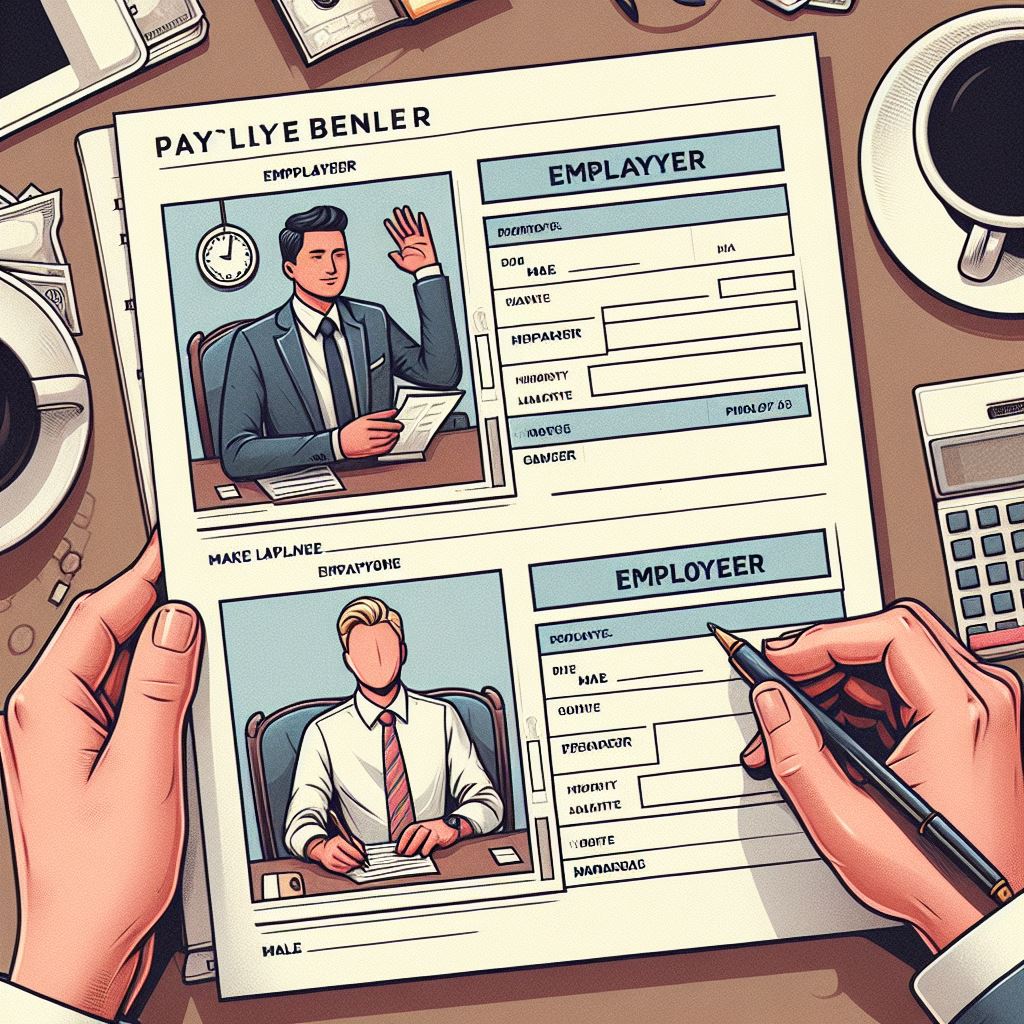Introduction to Payslips
Are you curious about the tiny slip of paper that accompanies your paycheck each month? Payslips may seem like a small detail, but they play a significant role for both employers and employees. Let’s dive into why pay slips are essential documents that should not be overlooked!
Importance of Pay slips for Employers
Pay slips play a crucial role in providing transparency and accountability within the workplace. For employers, these documents serve as a record of payment made to employees for services rendered. They help maintain accurate financial records by detailing wages, deductions, and bonuses.
Moreover, payslips aid in ensuring compliance with labor laws and regulations. By consistently providing detailed pay information to employees, employers can mitigate the risk of potential disputes or legal issues related to compensation.
Additionally, pay slips contribute to fostering trust and goodwill among employees. By clearly outlining how their salary is calculated and any applicable deductions are made, employers demonstrate transparency and fairness in their payroll practices.
Furthermore, pay slips can also be used as a tool for budgeting and financial planning by both employers and employees alike. Having access to clear breakdowns of income can help individuals make informed decisions about their expenses and savings goals.
In essence, the importance of pay slips for employers cannot be overstated – they not only ensure compliance with legal requirements but also promote transparency, trust, and financial stability within the organization.

Benefits of PaySlips for Employees
Having access to detailed pay slips can greatly benefit employees in various ways. Pay slips provide transparency by clearly outlining how much they are earning and the deductions being made. This helps employees understand their finances better.
Pay slips serve as proof of income which is essential for applying for loans or renting a property. Having official documentation of their earnings can make these processes smoother and faster. Moreover, pay slips help employees track their overtime hours, bonuses, and incentives accurately. This ensures that they are being paid correctly for all the work they have done.
Additionally, having a record of past pay slips can be helpful during tax season as it provides a clear overview of earnings throughout the year. Payslips offer employees peace of mind knowing that they are being compensated fairly and accurately for their hard work.
Legal Requirements for Providing Payslips
When it comes to providing pay slips, there are legal requirements that both employers and employees must adhere to. These requirements vary depending on the country or state where the business operates. It is essential for employers to familiarize themselves with the laws and regulations governing pay slip issuance in their location.
In many jurisdictions, employers are required by law to provide employees with a detailed pay slip each time they receive their wages. This document should include important information such as gross earnings, deductions, net pay, and any additional allowances.
Failure to comply with legal requirements regarding pay slips can result in penalties or fines for the employer. Additionally, not providing accurate and comprehensive pay slips can lead to misunderstandings.
It is crucial for businesses to stay up-to-date with any changes in labor laws related to pay slip provision to ensure compliance and maintain positive relationships with their workforce.

Common Mistakes to Avoid in Issuing Payslips
When it comes to issuing pay slips, there are common mistakes that employers should avoid to ensure accuracy and compliance with regulations. One frequent mistake is failing to include all necessary information on the pay slip. This can lead to confusion for employees and potential legal issues down the line.
Another error to steer clear of is not providing pay slips in a timely manner. Employees rely on these documents for budgeting and tax purposes, so delays can cause unnecessary stress and inconvenience. Additionally, inaccuracies in pay slip calculations can result in disputes and decreased trust between employers and employees.
It’s crucial to double-check all figures before issuing pay slips to avoid errors that could impact an employee’s income or deductions. Neglecting to keep records of issued pay slips can create complications during audits.
By avoiding these common mistakes, employers can maintain transparency, build trust with their employees, and stay compliant with legal requirements related to issuing pay slips.
How to Create a Comprehensive and Accurate Payslip
Creating a comprehensive and accurate pay slip is crucial for both employers and employees. To start, ensure that all necessary information is included on the pay slip, such as the employee’s name, address, and Social Security number.
Next, clearly outline the payment period and dates covered by the pay slip to avoid any confusion. Make sure to accurately calculate gross wages, deductions, taxes withheld, and net pay.
Additionally, include details about overtime hours worked if applicable and any bonuses or commissions earned during the pay period. Double-check all calculations to eliminate errors that could lead to discrepancies or misunderstandings.
Moreover, provide a breakdown of each deduction category including health insurance premiums, retirement contributions, and other benefits deducted from the employee’s paycheck.
Lastly but importantly use professional software like a Paystub generator tool to streamline this process effectively while ensuring accuracy in every aspect of creating a comprehensive and accurate pay slip for your employees.

Conclusion
Pay slips are essential documents for both employers and employees. They serve as a crucial tool for ensuring transparency, compliance with legal requirements, and maintaining a healthy employer-employee relationship. By understanding the importance of pay slips, employers can effectively manage payroll processes while employees can stay informed about their wages and deductions.
Pay slips not only benefit both parties but also contribute to a fair and harmonious work environment. Therefore, it is vital for organizations to prioritize the accurate generation and timely distribution of pay slips to uphold trust and accountability in the workplace.





